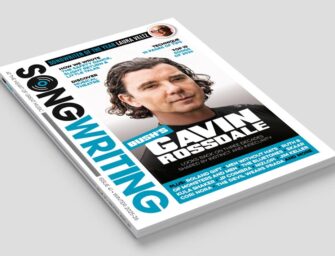Drawing on his experience of writing and directing a full staged musical, Steve Kopandy shares his advice on crafting songs around characters
Hailing from the beachside town of Newcastle, Australia, Steve’s love of the musical theatre was ignited with a lead part in a school musical in 1997, which preceded a Stage Manager role in local amateur theatre productions. Through these years he also fronted various rock bands in Australia and began his path as a songwriter.
Steve’s original music has been featured in various advertising campaigns for big companies in Australia. His love of lyricism and melodies led him to write songs for Bill Rich’s musical The House Of Finnegan, also producing and serving as an Artistic Director for the inaugural production in Los Angeles.
From his experience in writing and directing a full staged musical, Steve shares his tips on effective character-based writing…
1. Interview the character’s creator
I met with the book writer and discussed each character in person before I wrote the songs. He enjoyed talking about his characters in depth. I asked him about the character’s childhood, key moments and life-changing experiences that led the character to where they are at this point in the story.
Where the character’s history did not exist, the book writer enjoyed creating this detail in the discussion with me and it became a collaborative experience. If the character doesn’t give you this information, part of the creative process can be creating the backstory yourself as a songwriter and presenting it
to the character’s creator. This process gave each character more depth and relatability for me to draw on, and gave me more content to work with.
2. Have conversations with people who might line up with the character’s profile
If you are a 20-year-old male writing about a 40-year-old female, talk to your mum, your grandmother or a friend in that age bracket and ask them what life is/was like. Ideally, you should interview people who might have had a similar background/journey to the character so think about who you know who could have gone through the same things. The more you can get that person to open up and talk about their deep emotions, the more you will have to work with. If the person is not open or forthcoming, you could ask them about their friends, or if they know anyone who has gone through a similar life experience relatable to the character.
It’s also important that you tell the people you are interviewing that their name or likeness will not be used and that details of their own story won’t be divulged, but you are just hoping to personally understand the emotions so you can best overlay them onto your character. The subject will likely take pride in the fact they are being used as inspiration.
3. Try and relate your own life to the character’s
Draw upon your own experiences to give more depth to a specific story. Take the example of your character marrying the wrong person, divorcing and dying alone. Maybe you’ve been estranged from a family member in a similar way? Maybe your boss promised you something and didn’t see it through? With this example, you could also draw on your own parallel fears of the future.
Maybe you fear signing a contract to buy a house, and being stuck with it as it goes down in value? Try to amplify that fear and overlay it onto the song. The most engaging characters go right to the edge of emotion and human capability, so if your own experiences seem trivial, that’s ok. The challenge of being a writer is to push the limits and force yourself to emotionally go to those places…



































Related Articles